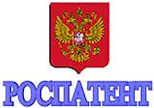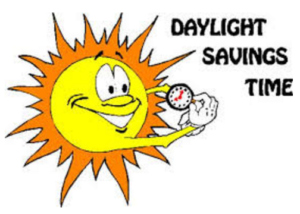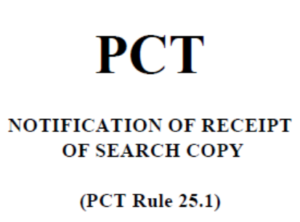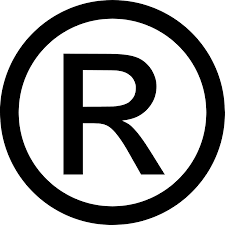In a refreshing bit of clarity, the USPTO published a final rule yesterday settling the status of persons who represent clients before the Patent Trial and Appeal Board.
Continue reading “Attorney client privilege and the US patent process”

Bluesky: @oppedahl.com
In a refreshing bit of clarity, the USPTO published a final rule yesterday settling the status of persons who represent clients before the Patent Trial and Appeal Board.
Continue reading “Attorney client privilege and the US patent process”
Those who handle pending US patent applications are well aware that it is impossible to carry out one’s work competently without knowing how to use Private PAIR to view pending US patent applications and to check the status of such applications. Likewise one needs to know how to use EFS-Web to file new patent applications and to file follow-on papers.
ePCT is the mechanism for viewing pending PCT applications and for checking the status of such applications. ePCT is an important part of the filing of new PCT patent applications and is a crucial part of the filing of follow-on papers in PCT applications.
It is thus extremely important to learn how to use ePCT. ePCT is extraordinarily feature rich. Here are four webinars which together will explore the 20% or so of the ePCT features which you will use 80% of the time. Continue reading “Webinars to learn about ePCT”
As I reported a week ago, the usual autumn thing happened with time zones. A week ago Europe “fell back” with daylight saving time.
Now today the US also “fell back”.
For the past week, US filers had an extra hour available to get a same-day filing date for filings at WIPO. A US filer could file as late as 5PM (Mountain Time) instead of the usual 4PM, and get a same-day filing date.
Now it is back to normal. The time of day to keep in mind is once again 4PM Mountain Time.
 The search fee paid by US filers of PCT applications for the Russian searching authority will increase on December 6, 2017 from $482 to $698. You can see the details here.
The search fee paid by US filers of PCT applications for the Russian searching authority will increase on December 6, 2017 from $482 to $698. You can see the details here.
This changes slightly the ranking by cost of the various searching authorities available to filers in RO/US. Here is how the search fees will rank after the fee change of December 6:
The result of this fee change is that, for the first time in a very long time, the Russian patent office will not be the least expensive searching authority for PCT filers in RO/US. ISA/US will be the least expensive (but only for a filer that qualifies for micro entity status).
Filers in RO/US tend to pick ISA/EP, ISA/US, or ISA/KR. It is relatively rare that a US filer will pick ISA/RU (or ISA/AU, ISA/IL, ISA/JP, or ISA/SG). Nonetheless, for the US filer who is planning to file a PCT application in which ISA/RU is selected, there will be an opportunity to save a little money. The filer could file on December 5 rather than December 6, and the savings would be $216.
I’ll be offering a webinar about intellectual property ethics. It is accredited for ethics credit CLE in California and Colorado. You can read about it here. Attendees will receive a Certificate of Attendance which might get you CLE credit in other states if you are lucky.
Those who are subscribed to this blog may use coupon code “blog17” between now and November 6 to get a $20 discount on this program.
 Filers in the Patent Cooperation Treaty, Madrid Protocol, and Hague Agreement systems (utility patents, trademarks, and industrial designs) know that it is important to keep always in mind when midnight will arrive in Geneva, where WIPO is located.
Filers in the Patent Cooperation Treaty, Madrid Protocol, and Hague Agreement systems (utility patents, trademarks, and industrial designs) know that it is important to keep always in mind when midnight will arrive in Geneva, where WIPO is located.
For a PCT filer, this matters because to get a same-day filing date, a PCT application being filed in RO/IB will (usually) need to be filed by 4 PM Mountain Time. The same is true for filing an Article 19 amendment. The same is true if you are using ePCT to file a Demand and Article 34 amendment.
For a Madrid filer, this matters among other things for the payment of decade renewal fees.
For a Hague filer, this matters for the the filing of an international design application at the IB.
The point of today’s post is that starting yesterday, and for the next week, you get an extra hour to get a same-day filing date. The reason is that Europe and the US carry out their daylight saving time transitions on different days that are a week apart.
This means that you could file as late as 5 PM Mountain Time (instead of the usual 4 PM) and still get a same-day filing date.
Things will return to normal a week from now, on November 5, 2016.
 One thing that happens, after you file a PCT patent application, is that Form PCT/ISA/202 arrives. (Or fails to arrive.) Why do we care about Form PCT/ISA/202? I offer some thoughts here. Continue reading “Why we care about Form PCT/ISA/202”
One thing that happens, after you file a PCT patent application, is that Form PCT/ISA/202 arrives. (Or fails to arrive.) Why do we care about Form PCT/ISA/202? I offer some thoughts here. Continue reading “Why we care about Form PCT/ISA/202”
Can the terms “serial number” and “application number” be used interchangeably? The answer is “no” as I will discuss. Continue reading “Serial number? Application number?”

How long does it take the Trademark Office at the USPTO to issue a Certificate of Registration? That is to say, once an opposition period has concluded with nobody having filed opposition, how much time goes by before the USPTO actually grants the registration? Is it sometimes slower? Sometimes faster? The amount of delay turns out to be extremely predictable.
Continue reading “How long it takes USPTO to issue a Certificate of Registration?”
 As I mentioned in an earlier blog article, the fee that ISA/SG charges per invention to carry out a PCT search will increase on November 1, 2017. The fee charged in US dollars will increase from $1552 to $1645.
As I mentioned in an earlier blog article, the fee that ISA/SG charges per invention to carry out a PCT search will increase on November 1, 2017. The fee charged in US dollars will increase from $1552 to $1645.
This offers an opportunity to save a little money, if a US filer is planning to file a PCT application in the near future and is planning to pick the Singapore patent office as the international searching authority. Just get the application filed prior to November 1.